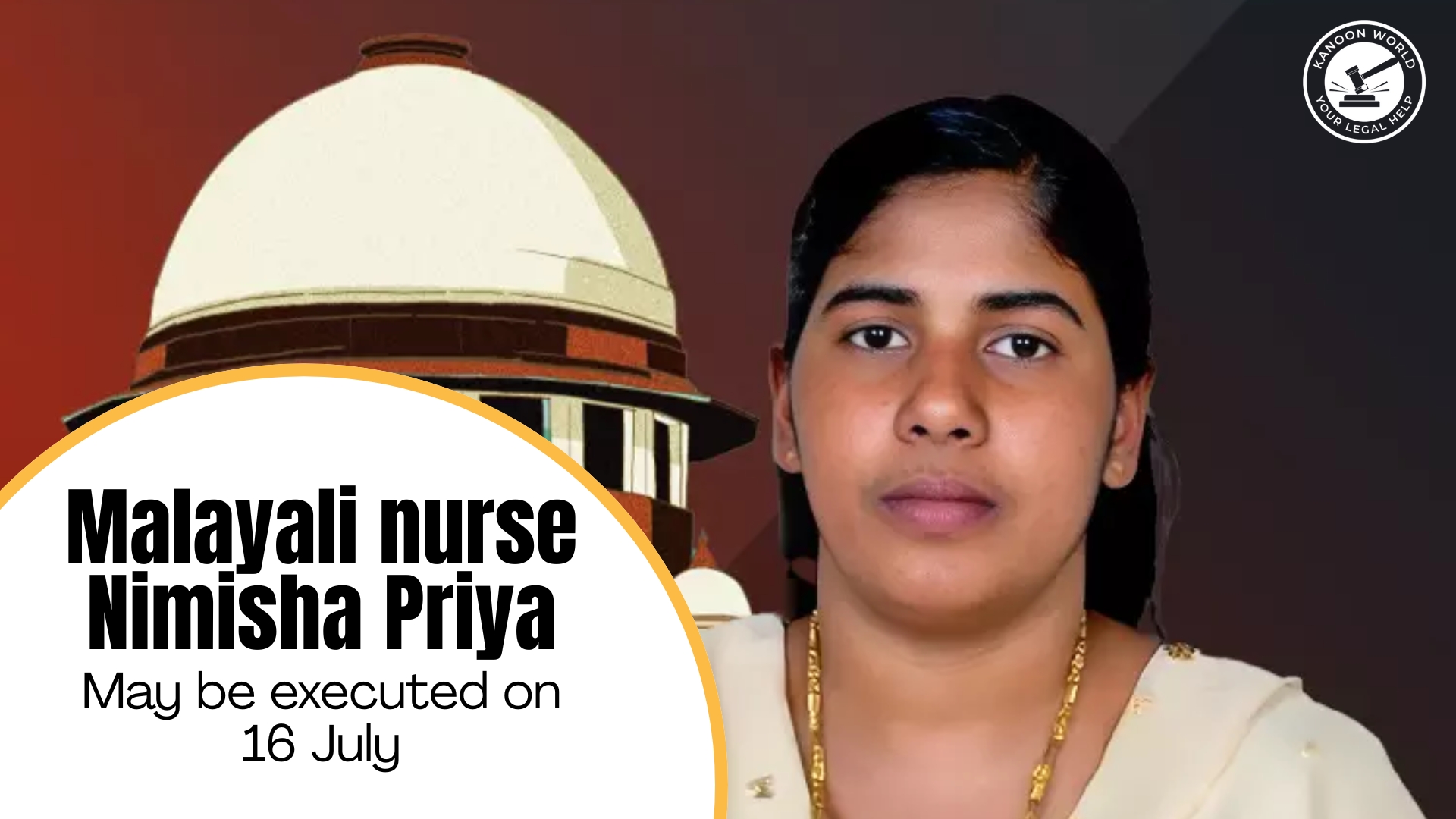Though a few online and television media houses reported the development, there was no official confirmation yet from her family members or the representatives of the Save Nimisha Priya Action Council, which had initiated legal and other measures secure her release from prison.
With only three days remaining before the scheduled execution of Kerala nurse Nimisha Priya, convicted of murdering a Yemeni national in 2017, her family has made a last-ditch plea for clemency by offering $1 million (approximately ₹8.6 crore) as “blood money” to the victim’s family in a attempt to save her life, as reported by PTI.
What is Blood Money?
Under Islamic Sharia law, blood money or “diyya” refers to financial compensation paid by the accused to the victim’s family in serious crimes such as murder. Sharia law distinguishes between two types of homicide–intentional and unintentional (by mistake).
The principles of qisas (retaliation) and diyat (blood money) were established to end endless cycles of revenge killings fueled by tribal animosity, according to the report. Tellenbach explained that these punishments are designed primarily for retribution and restoring social balance.
Blood money depends on?
According to the World Legal Information Institute (WorldLII), countries such as Yemen, Saudi Arabia, the UAE, and Pakistan have formal legal codes governing the process of diyya. Failure to pay diyya can lead to legal penalties or the enforcement of qisas.
In many Islamic countries, the amount of compensation depends on factors like the victim’s gender, religion, and nationality. However, accepting blood money does not always absolve the accused of all charges; states may still impose punishments, such as fines, to maintain law and order.
Yemen follows Islamic law principles, particularly those of the Hanbali and Shafi’i schools of jurisprudence, which guide the application of qisas and diyya.
Nimisha Priya case
The Supreme Court agreed to hear a plea seeking a direction to the Centre to use diplomatic channels to save an Indian nurse who faces execution in Yemen on July 16 for murder charges.
A bench comprising Justices Sudhanshu Dhulia and Joymalya Bagchi scheduled the hearing for July 14, following advocate Subhash Chandran KR’s submission emphasising the urgent need to explore diplomatic avenues.
The family of the deceased may pardon the Kerala nurse if blood money is paid, he submitted.
Nimisha Priya, 38, a nurse from Palakkad district in Kerala, was convicted in 2017 of murdering her Yemeni business partner. She was sentenced to death in 2020, and her final appeal was rejected in 2023.
She is currently imprisoned in a jail in Sana’a, the capital of Yemen.
A plea for clemency has been filed by the organization “Save Nimisha Priya – International Action Council,” which provides legal support to assist her, PTI reported.
The family of the deceased may pardon the Kerala nurse if blood money is paid.
Previously, MEA confirmed its awareness of the death sentence handed to Nimisha Priya and assured that the government is providing all possible assistance. In response to media queries regarding the case of Nimisha Priya, MEA official spokesperson Randhir Jaiswal said, “We are aware of the sentencing of Ms. Nimisha Priya in Yemen. We understand that the family of Ms. Priya is exploring relevant options. The government is extending all possible help in the matter.”



